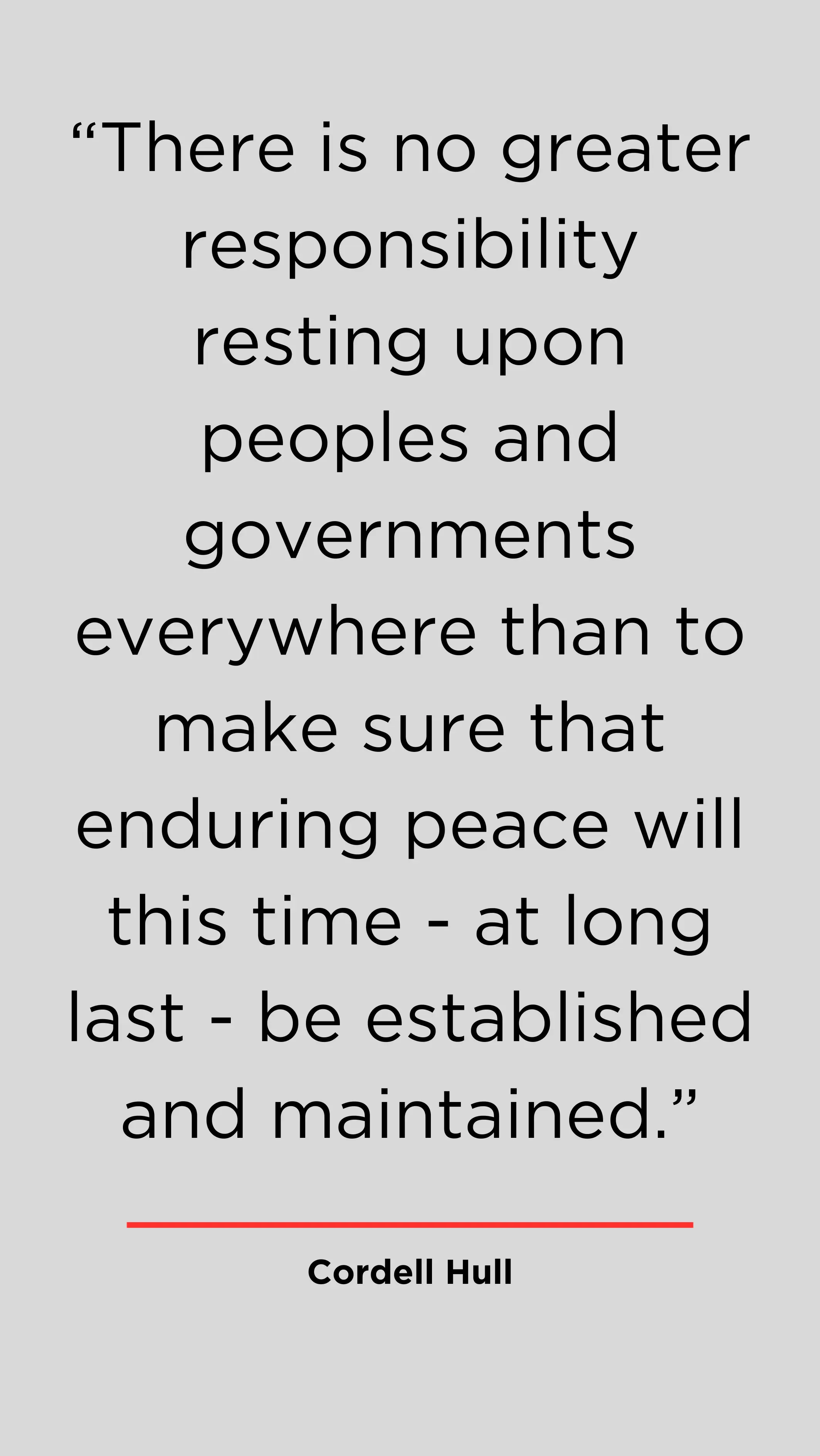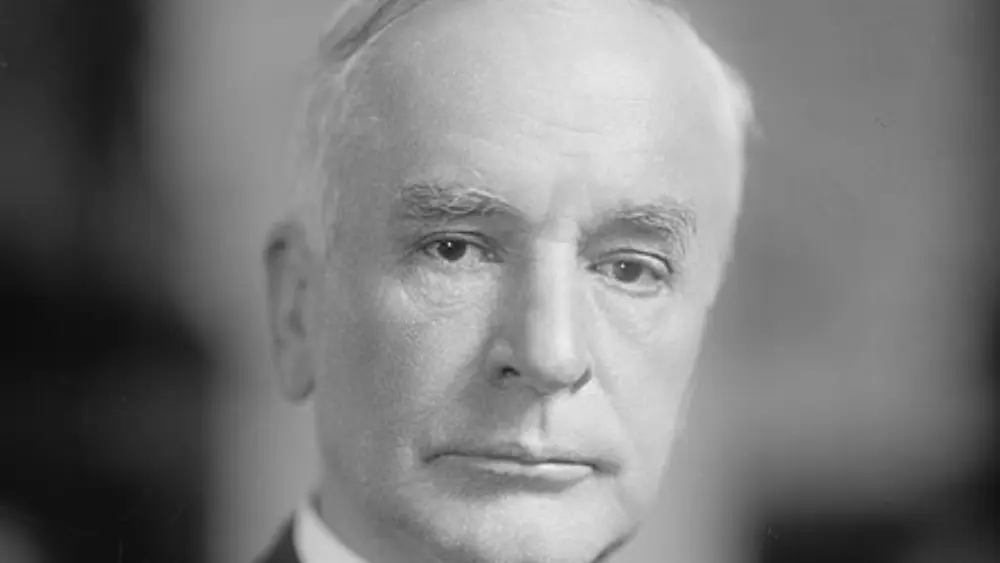Cordell Hull, born on October 2, 1871, in a log cabin in rural Tennessee, emerged as a key architect of American diplomacy during a critical period in history. Subsequently, he played a pivotal role in shaping the nation’s foreign policy. Moreover, his early years in a humble setting laid the foundation for a remarkable journey that would impact the course of diplomatic history. Serving as the longest-serving U.S. Secretary of State, Hull played a pivotal role in shaping foreign policy in the prelude to World War II.
Early Life and Political Beginnings
Cordell Hull’s journey into public service began against the backdrop of rural Tennessee, where he experienced modest beginnings. Born into a farming family, Hull’s early years were shaped by the agrarian landscape, fostering values of hard work and community. Despite facing limited formal education opportunities, his keen intellect and ambition propelled him forward. Nevertheless, he tirelessly pursued knowledge and skill development. In doing so, he defied the constraints imposed by his educational limitations. Moreover, his unwavering determination became a driving force in overcoming obstacles. Despite the odds stacked against him, his perseverance not only enabled personal growth but also positioned him as a formidable force in his chosen field.
Hull’s interest in politics emerged early on, leading him to pursue a legal career. He embarked on a path that would see him rise through the ranks, gaining a reputation for his sharp legal mind and dedication to public service. “His ability to navigate the complexities of the legal profession laid the foundation for a remarkable political career that would ultimately have a profound impact on both national and international affairs. Additionally, his astute legal acumen paved the way for strategic decision-making in the political arena. Furthermore, his keen understanding of legal intricacies seamlessly translated into effective governance.
Cordell Hull: Congressional Career: From Tennessee to Washington, D.C.
Cordell Hull’s entrance into national politics occurred when he secured a seat in the U.S. House of Representatives, serving from 1907 to 1921. Subsequently, this marked the inception of a prolific political career that would span several decades. During his tenure in the House, Hull played a pivotal role in shaping legislative initiatives. Moreover, his commitment to public service was evident in his consistent advocacy for key policy reforms. Additionally, his experience in the House laid the groundwork for future leadership roles. Representing Tennessee’s 4th congressional district, Hull quickly distinguished himself with his commitment to progressive policies. During this period, he championed the cause of tariff reform, advocating for changes in trade policies to support domestic industries and consumers. His focus on progressive ideals aligned with the broader political landscape of the time as the United States grappled with economic challenges and the need for reforms.
Hull’s time in the House also marked his growing interest in international trade matters, setting the stage for his later diplomatic endeavors. His advocacy for tariff reform hinted at the broader perspective he would bring to his diplomatic career, where he would play a pivotal role in shaping the nation’s approach to international relations and trade agreements. The seeds of his commitment to progressive policies and engagement with global issues were sown during his congressional years, laying the groundwork for his future contributions on the world stage.
Secretary of State: Navigating a Complex World
Cordell Hull’s tenure as Secretary of State, beginning in 1933 under President Franklin D. Roosevelt, unfolded against the backdrop of a world grappling with the consequences of World War I and the emergence of new geopolitical challenges. The international landscape was characterized by economic instability, the rise of totalitarian regimes, and the complex interplay of nations seeking to navigate a fragile peace. Hull faced the formidable task of guiding American diplomacy through this intricate and rapidly evolving global environment.
During his time as Secretary of State, Hull addressed economic challenges through his commitment to reciprocal trade agreements. His efforts were aimed at fostering economic cooperation and open markets to counteract the economic nationalism that had contributed to the Great Depression. Hull’s diplomatic acumen and dedication to international collaboration laid the groundwork for his later efforts to promote peace and cooperation on the global stage.
Cordell Hull: The Reciprocal Trade Agreements Act: A Diplomatic Milestone
Cordell Hull’s lasting legacy as a champion of international cooperation and trade diplomacy is epitomized by his instrumental role in passing the Reciprocal Trade Agreements Act of 1934. This landmark legislation marked a departure from the protectionist trade policies that had characterized the early 20th century. The act granted the President the authority to negotiate and implement trade agreements with other nations, fostering a more dynamic and collaborative approach to international trade relations.
The Reciprocal Trade Agreements Act provided a framework for reducing tariffs and trade barriers, promoting a system of reciprocal concessions between nations. By empowering the President to engage in flexible and strategic negotiations, Hull’s vision aimed to stimulate global economic recovery, foster goodwill among nations, and create a foundation for lasting peace. This diplomatic milestone laid the groundwork for the modern era of international trade agreements, emphasizing cooperation and mutual benefit among nations.
Good Neighbor Policy: Fostering Relations in the Americas
Cordell Hull’s advocacy for the Good Neighbor Policy exemplified his commitment to fostering positive relations in the Western Hemisphere. Adopted during Franklin D. Roosevelt’s presidency, this policy marked a departure from traditional U.S. interventions in Latin American affairs and sought to establish a more respectful and cooperative approach. The core principles included non-intervention, non-interference, and mutual respect for the sovereignty of nations within the Americas.
Under Hull’s guidance, the Good Neighbor Policy aimed to build trust and collaboration with Latin American countries. By renouncing the use of military intervention and embracing diplomacy, the United States sought to promote economic and cultural exchanges, ultimately contributing to a more harmonious and equitable relationship with its neighbors to the south. This approach reflected Hull’s belief in the power of diplomacy and cooperation to build lasting partnerships and strengthen the bonds of goodwill between nations in the Americas.
Cordell Hull: Rising Tensions: Navigating the Prelude to War
Cordell Hull confronted the rising tensions in Europe and Asia with a determination to guide American foreign policy away from isolationism during the prelude to World War II. Recognizing the global interdependence of nations, Hull understood the necessity of engaging with international affairs to promote stability and prevent conflicts. He advocated for collective security measures, emphasizing the importance of collaboration among nations to address common threats and maintain global peace.
Despite Hull’s persistent efforts, World War II’s eruption in the late 1930s vividly revealed the shortcomings of relying solely on diplomatic measures against aggressive militarism. The conflict underscored the limitations of diplomatic solutions and prompted a reevaluation of U.S. foreign policy. Hull’s tenure as Secretary of State encapsulated the intricate geopolitical landscape, emphasizing the challenges of navigating a world on the brink of war. His leadership highlighted the intricate interplay of political forces and showcased the nuanced decision-making needed amid escalating international tensions. The era demonstrated the inadequacy of diplomatic norms, urging a comprehensive approach to address the complex challenges posed by Axis powers.

Nobel Peace Prize and Legacy
The Nobel Peace Prize in 1945 recognized Cordell Hull’s monumental contribution to international diplomacy. The prize was a testament to Hull’s pivotal role in the establishment of the United Nations (UN), a global organization conceived with the aim of fostering international cooperation and preventing the recurrence of devastating conflicts like World War II. As the chief architect of the UN, Hull played a key role in shaping the post-war world order and promoting a vision of collaborative diplomacy to address global challenges.
Hull’s legacy goes beyond receiving the Nobel Peace Prize, leaving a lasting impact on the field of international relations. His tireless efforts to promote dialogue, understanding, and cooperation among nations set a precedent for future diplomats and leaders. The United Nations, with its emphasis on diplomacy, conflict resolution, and collective security, stands as a lasting testament to Hull’s commitment to creating a world where nations could work together to achieve common goals and prevent the horrors of war.











